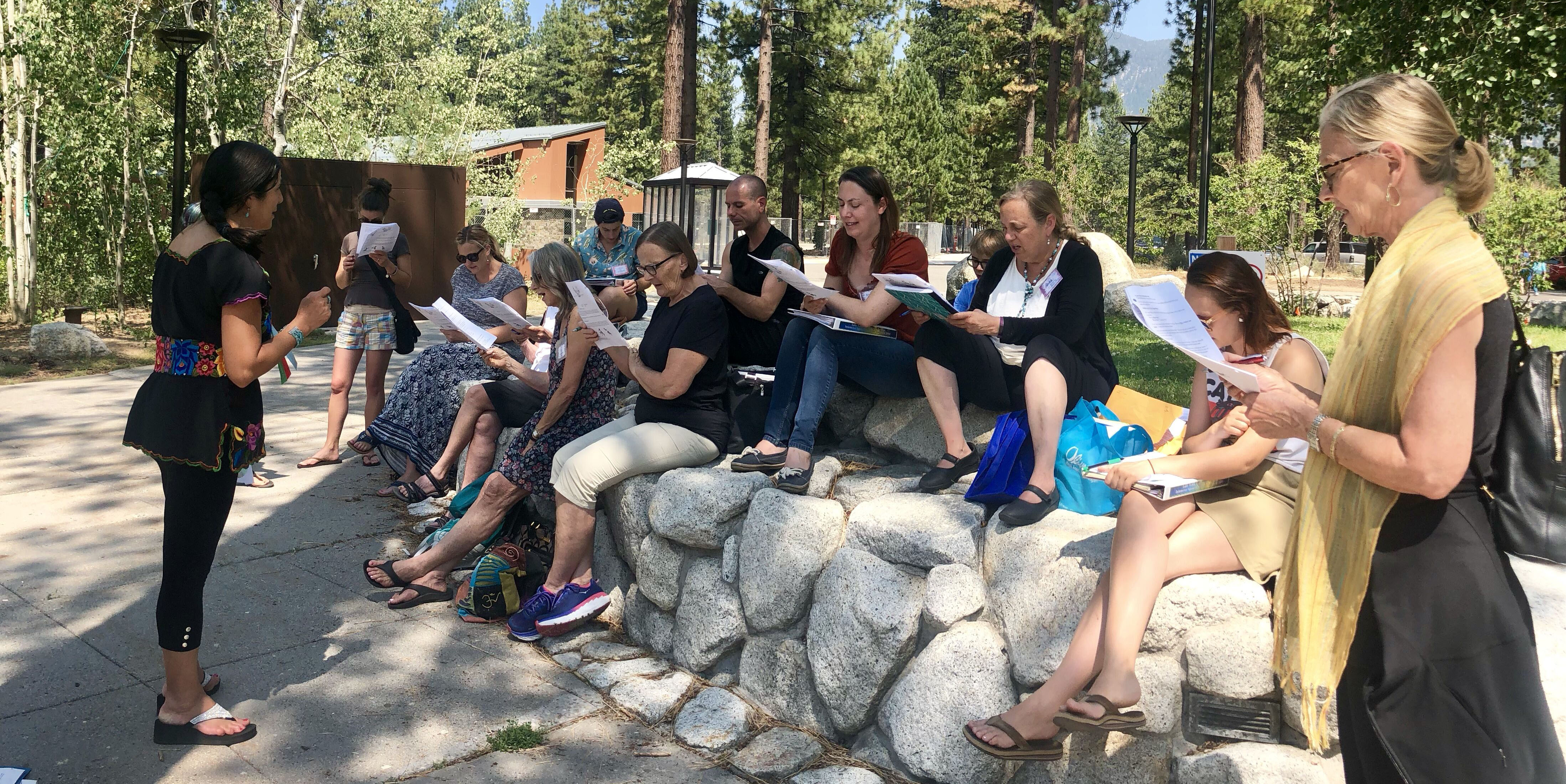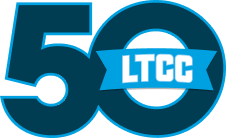Core Courses

"I was able to build warm relationships with people from California and other Western states, and also the instructors of the core course. A friendly and inclusive atmosphere enveloped the entire campus."
– Recent ISSI program participant
Courses are offered Monday – Friday, 8:00 AM – 3:20 PM
You will be in more than one classroom as you move through your day. The cultural breakout sessions are included and do not require separate registration. However, you must register for any numbered course (e.g., SPA 156C).
View the full breakdown of the day on our Typical Day at ISSI page.
Unless otherwise noted, all materials are provided. Alternate formats are available upon request. If you require disability accommodations, please let us know in advance. Optional materials include a Spanish-English/English-Spanish dictionary and the 501 Spanish Verbs book.
Self-Placement
Use the core course descriptions below to determine your placement level.
Questions?
For course-specific questions, email Academic Coordinator Sarah Harmon at sharmon@ltcc.edu.
ISSI Self-Placement Information
Below you'll see a list of the courses offered at ISSI. Each course has information about the concepts that are taught for that level. (Note: All levels use the first day to review the material that has been covered in the previous level.) There are also free quizzes that you can take; these quizzes are housed on other websites but cover material that is similar to that level.
If you have never studied Spanish before and you know zero Spanish, you should enroll in SPA 121A, Low Beginning Spanish. This is our entry-level course.
If you have taken some Spanish in the past, or if you have some knowledge of Spanish, then you will need to determine which course is your best fit.
How to Use the Table
- Read the descriptions of the levels.
- Aim for the level that best represents the last grammar instruction that you have had in the past. (If you have ‘picked up Spanish’ by talking to Spanish-speaking people, then aim for what sounds most like what you know.)
- Take the self-placement quizzes for the grammar level that you think might best fit
your knowledge.
- If you get 80% or higher on most of the self-placement quizzes, then consider going one or two levels higher.
- If you get 40–80% on most of the self-placement quizzes, then consider taking that level.
- If you consistently get less than 40% on most of the quizzes, or the quizzes cover material that you don't know at all, then consider going one or more levels lower.
ISSI Low-Tier Courses
| Course | Grammar and Vocabulary Topics | Free Quizzes |
|---|---|---|
| SPA 121A Low Beginning |
Forms of Address Subject pronouns Alphabet Asking basic questions Articles and gender The verbs estar, ser, ir, gustar, and tener |
Agreement (Bowdoin/Yepes) Definite and indefinite articles (Barbara Kuczun Nelson) |
| SPA 121B Beginning |
Asking more questions Numbers, colors, clothing Cognates Basic pronunciation Regular present-tense verbs (-ar, -er, -ir) More practice with gustar |
Present tense regular verbs (Bowdoin/Yepes) Gustar (Barbara Kuczun Nelson) |
| SPA 121D High Beginning |
Verbs with irregular ‘yo’ forms Stem-changing verbs Basic sentences Adjectives Ser versus Estar |
Ser versus estar (Bowdoin/Yepes) Stem-changing verbs (Bowdoin/Yepes) |
| SPA 122A Low Intermediate |
More stem-changing and irregular verbs Reflexive verbs Present progressive |
Reflexive verbs (Bowdoin/Yepes) Present progressive (Barbara Kuczun Nelson) |
| SPA 122B Intermediate |
Past-tense narration using the preterit Weather Past-tense narration using the imperfect |
Imperfect (Bowdoin/Yepes) Preterit with irregular meanings (Barbara Kuczun Nelson) |
| SPA 122C Intermediate II |
Narrating in the past with preterit and imperfect Present Perfect Direct object pronouns Indirect object pronouns Prepositions |
Preterit forms (Bowdoin/Yepes) Direct object pronouns (Bowdoin/Yepes) Indirect object pronouns (Bowdoin/Yepes) Present perfect (Barbara Kuczun Nelson) |
| SPA 122CA Intermediate III |
More practice with the preterit and the imperfect Uses of se More practice with object pronouns |
Preterit vs. Imperfect (Bowdoin/Yepes) Combination of object pronouns (Bowdoin/Yepes) |
ISSI High-Tier Courses
| Course | Grammar and Vocabulary Topics | Free Quizzes |
|---|---|---|
| ISSI High-Tier Courses | ||
| SPA 122D High Intermediate |
More practice with the preterit and the imperfect Irregular preterit forms Present subjunctive forms Formal and informal commands Reading and speaking at a 4th-grade level |
Present subjunctive forms (Bowdoin/Yepes) Formal commands (Barbara Kuczun Nelson) |
| SPA 122E High Intermediate II |
More practice with the preterit and the imperfect Uses of the present subjunctive More practice with commands Por versus para Reading and speaking at a 5th-grade level |
Por vs. Para (Bowdoin/Yepes) Informal commands (Barbara Kuczun Nelson) |
| SPA 122EA High Intermediate III |
Time expressions with hacer More practice with the present subjunctive Comparatives and superlatives Reading and speaking at the 6th-grade level |
Comparatives (Bowdoin/Yepes) Superlatives (Study Spanish) Time expressions with hacer (Study Spanish) |
| SPA 123A Low Advanced |
Present subjunctive with desire, emotion and doubt Present subjunctive with uncertainty Expressions that require the subjunctive Reading and speaking at the 7th-grade level |
Present subjunctive in noun clauses (Bowdoin/Yepes) Present indicative vs. Present subjunctive with certainty (Barbara Kuczun Nelson) |
| SPA 123B Advanced |
More practice with the present subjunctive with desire, doubt and emotion Present subjunctive with adverbial clauses Reading and speaking at the 8th-grade level |
Present subjunctive with adjective clauses (Bowdoin/Yepes) Present subjunctive with adverb clauses (Bowdoin/Yepes) |
| SPA 123D High Advanced |
Present subjunctive with future constructions The conditional The past or imperfect subjunctive Reading and speaking at the 9th-grade level |
Future tense (Bowdoin/Yepes) Conditional (Barbara Kuczun Nelson) |
| SPA 124 Low Superior |
More practice with the past subjunctive Se in passive voice Hypothetical phrases Reading and speaking at the 10th-grade level |
Past subjunctive (Bowdoin/Yepes) Hypothetical phrases (Barbara Kuczun Nelson) |
| SPA 124A Superior |
Review of all grammar points while starting to expand reading comprehension through
literature. Reading and speaking at the 11th- or 12th-grade level |
|
| SPA 124D or 124F High Superior |
Targeted grammatical practice while focusing on literature, art or culture Reading and speaking at a collegiate level |
|
